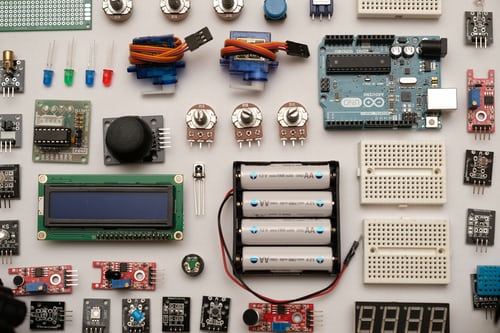Sensors are the primary link to realize automatic detection and automatic control. Its existence and development give objects the sense of touch, taste and smell, and make objects slowly become alive. How to select a sensor reasonably according to the specific measurement purpose, measurement object and measurement environment is the first problem to be solved when measuring a certain quantity. The success or failure of the measurement result depends to a large extent on whether the selection of the sensor is reasonable. Let's take a look at the factors to consider when choosing a sensor:
1. Determine the type according to the measurement object and measurement environment
To carry out a specific measurement, we must first consider the sensor of which principle to use, because even if it is measuring the same physical quantity, there are sensors with multiple principles to choose from. Which one is more suitable depends on the measurement. The characteristics and conditions of use are considered, such as: the size of the measuring range, the requirement of the measured position on the volume of the sensor, whether the measurement method is contact or non-contact, the method of signal extraction, wired or non-contact measurement, the source of the sensor, domestic or imported , Can the price be affordable, or develop it by ourselves.
After considering the above issues, we can determine which type of sensor to choose, and then consider the specific performance indicators of the sensor.
2. Selection of sensitivity
Generally, within the linear range of the sensor, it is hoped that the higher the sensitivity of the sensor, the better. Because only when the sensitivity is high, the value of the output signal corresponding to the measured change is relatively large, which is conducive to signal processing. However, it should be noted that the sensitivity of the sensor is high, and external noise that has nothing to do with the measurement is also easy to mix in, and it will also be amplified by the amplification system, which affects the measurement accuracy. Therefore, it is required that the sensor itself should have a higher signal-to-noise ratio and minimize the interference signal introduced from the outside world.
The sensitivity of the sensor is directional. When the measured is a single vector, and its directivity requirements are high, you should choose a sensor with less sensitivity in other directions; if the measured is a multi-dimensional vector, the cross sensitivity of the sensor is required to be as small as possible.
3. Frequency response characteristics
The frequency response characteristic of the sensor determines the frequency range to be measured, and it must remain undistorted within the allowable frequency range. In fact, the response of the sensor always has a fixed delay, and it is hoped that the delay time is as short as possible. The higher the frequency response of the sensor, the wider the measurable signal frequency range.
In dynamic measurement, the response characteristics should be based on the characteristics of the signal (steady state, transient state, random, etc.) to avoid excessive errors.
4. Linear range
The linear range of the sensor refers to the range where the output is proportional to the input. In theory, the sensitivity remains constant within this range. The wider the linear range of the sensor, the larger the measuring range, and a certain measurement accuracy can be guaranteed. When selecting a sensor, when the type of sensor is determined, it is first necessary to see whether its range meets the requirements.
But in fact, no sensor can guarantee absolute linearity, and its linearity is also relative. When the required measurement accuracy is relatively low, within a certain range, the sensor with less nonlinear error can be approximately regarded as linear, which will bring great convenience to the measurement.
5. Stability
The ability of a sensor to keep its performance unchanged after a period of use is called stability. In addition to the structure of the sensor itself, the factors that affect the long-term stability of the sensor are mainly the environment in which the sensor is used. Therefore, in order to make the sensor have good stability, the sensor must have strong environmental adaptability. Before selecting a sensor, investigate its use environment, and select the appropriate sensor according to the specific use environment, or take appropriate measures to reduce the impact of the environment.
The stability of the sensor has a quantitative index. After the expiration date, it should be re-calibrated before use to determine whether the performance of the sensor has changed. In some occasions that require the sensor to be used for a long time but cannot be easily replaced or calibrated, the stability of the selected sensor is more stringent and must be able to withstand the test for a long time.
6. Precision
Accuracy is an important performance index of the sensor, and it is an important link related to the measurement accuracy of the entire measurement system. The higher the accuracy of the sensor, the more expensive it is. Therefore, the accuracy of the sensor only needs to meet the accuracy requirements of the entire measurement system, and it is not necessary to select too high. In this way, cheaper and simpler Atlas air compressor accessories can be selected among many sensors that meet the same measurement purpose.
If the measurement purpose is for qualitative analysis, select a sensor with high repeatability accuracy. It is not advisable to use a sensor with high absolute value accuracy; if it is for quantitative analysis and accurate measurement values must be obtained, a sensor with an accuracy level that can meet the requirements should be selected.
(Summarized by Easybom)



No comments yet